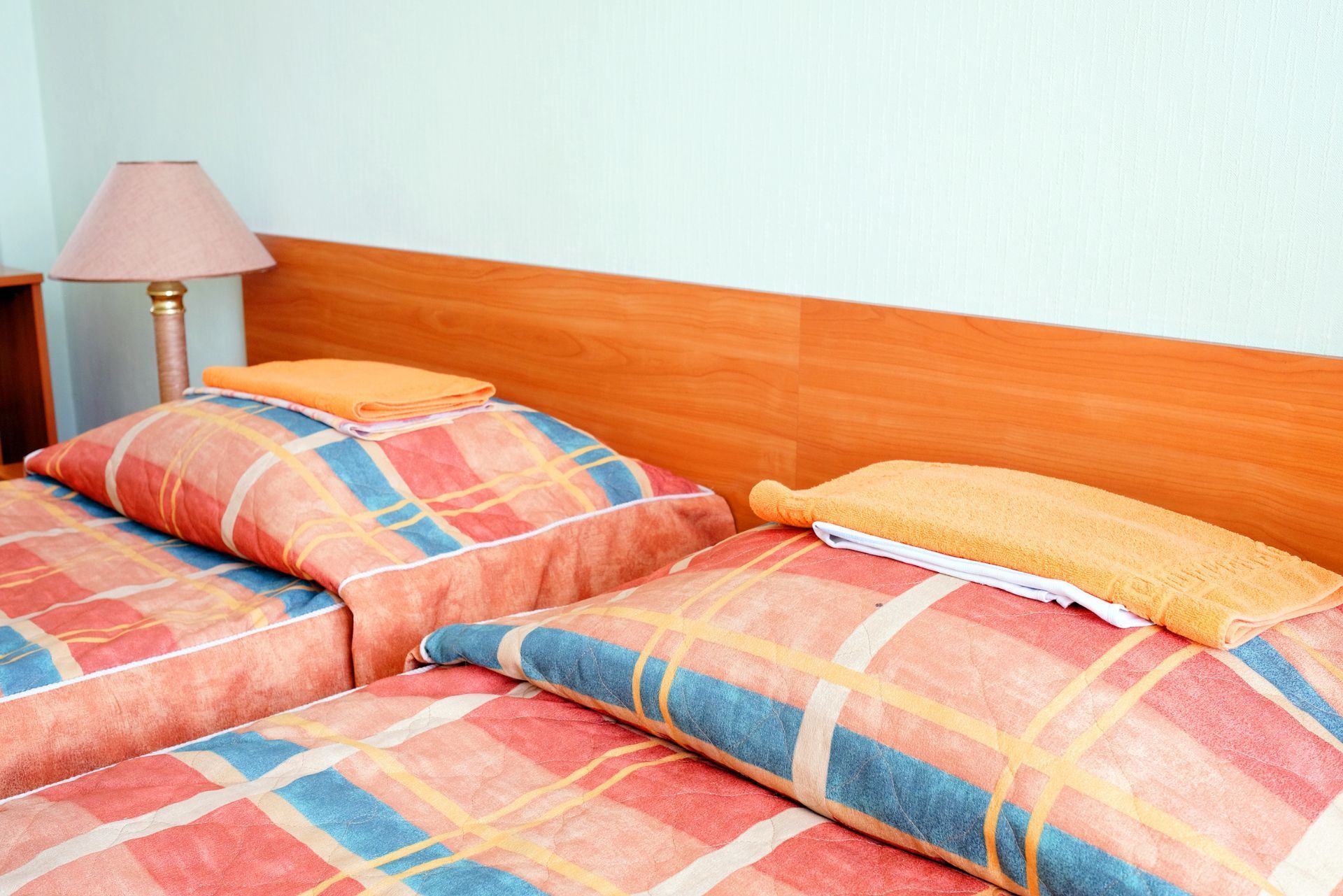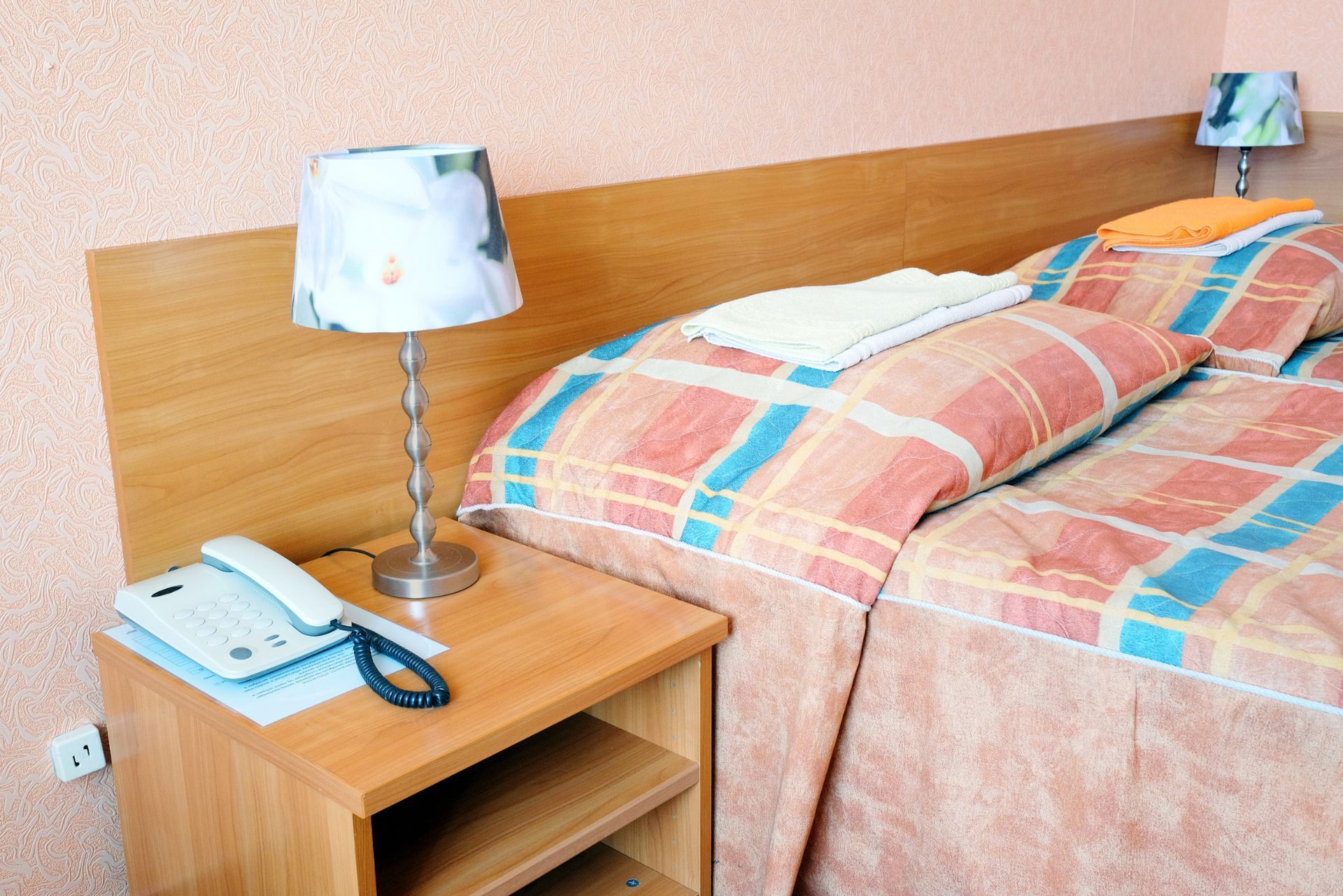Top 3 Recommended Policies

By: Lance Hale
Licensed Commercial Insurance Specialist
425-320-4280
Operating a motel in the Evergreen State can be as rewarding as it is demanding. With more than 22 million overnight leisure trips recorded by the Washington Tourism Alliance in 2023 and an average statewide occupancy rate hovering near 66 percent, the lodging industry remains vibrant. Yet every guest who checks in introduces new risks: slips on a wet staircase, data breaches at the reservation desk, windstorms pelting aging roofs, or kitchen fires racing through breakfast nooks. Motel insurance exists to absorb those blows, keep cash flow steady, and protect the long-term value of the property. The article that follows breaks down coverage options, pricing trends, risk-management tips, and claims procedures so that owners and managers can secure a tailor-made policy and stay focused on guest satisfaction rather than worst-case scenarios.
The Hospitality Landscape in Washington State
Washington’s lodging market is uniquely shaped by diverse geography. From coastal surf towns to Seattle’s tech-driven urban corridors and the vineyard-studded Columbia Basin, each region draws a different type of traveler. Consequently, exposures range from tsunami warnings along the Pacific to snowfall risks in the Cascades. According to the state Department of Commerce, visitor spending climbed to a record $22.4 billion in 2023, fueling a competitive environment where more than 1,500 motels now vie for bookings. Such growth heightens the need for solid insurance, because higher guest volumes statistically translate into more claims.
Loss data confirms the trend. A 2023 carrier study found that Washington motels filed 14 percent more property claims than the national lodging average, largely due to storm-related water damage and theft from unattended vehicles in parking lots. Liability suits also ticked upward, with premises injuries representing 47 percent of closed claims. Understanding these regional nuances allows owners to buy coverage limits and deductibles calibrated to local realities rather than generic national benchmarks.
Tourism and Occupancy Statistics
Occupancy is the metric that most directly links to insurance exposure. STR Global reported that weekends in King County averaged 78 percent occupancy in 2023, while mid-week business shrank closer to 61 percent as remote work patterns persisted. Eastern Washington, by contrast, saw steadier bookings thanks to year-round agricultural and energy projects. Higher occupancy increases foot traffic, elevating the probability of accidents, cyber events at check-in kiosks, and property wear-and-tear.
Seasonality compounds the issue. The San Juan Islands experience a surge between May and September when room demand triples. That compressed revenue window means a fire or plumbing failure in peak season could cripple yearly profits. Motels that secure business interruption coverage reflecting true high-season income can avoid a liquidity crunch and continue payroll and mortgage payments if a covered loss shuts rooms down.
Core Insurance Coverages for Motels
Every motel, whether an independent roadside lodge or a franchised two-story property, shares four foundational coverage pillars: commercial property, general liability, business interruption, and workers’ compensation. Carriers bundle these into what is often marketed as a “hospitality package,” though the fine print differs dramatically among insurers. Adequate limits and thoughtful endorsements can spell the difference between a minor inconvenience and a catastrophic shortfall when disaster strikes.
Coverage should be crafted around realistic replacement-cost estimates, not depreciated historical values. Inflation-guard endorsements are particularly relevant after the Pacific Northwest’s 10-percent year-over-year construction-cost jump, reported by Associated General Contractors. A shortfall of even $50 per square foot could leave owners personally financing rebuilds. Likewise, liability limits that once felt generous can become inadequate once attorney fees and medical inflation are tallied.
Washington is also one of the few states with a separate industrial insurance system, meaning workers’ compensation is administered by the Department of Labor & Industries unless a self-insured status is obtained. Factoring that statutory requirement into an overall risk-transfer plan prevents overlapping or missing protections.
Commercial Property Insurance
This coverage reimburses for physical damage to buildings, furnishings, signage, and equipment. Perils commonly purchased in Washington include fire, wind, theft, vandalism, and the weight of snow or ice. Because coastal motels face wind-driven rain and inland properties contend with wildfires, carriers may impose higher deductibles or separate sublimits for those perils.
General Liability Insurance
General liability pays when a guest or visitor alleges bodily injury or property damage due to the motel’s negligence. The median slip-and-fall payout in Washington topped $38,000 last year according to Jury Verdicts Northwest. Given that figure, many brokers recommend at least $2 million in aggregate liability limits and consider a commercial umbrella for additional peace of mind.
Business Interruption Insurance
Sometimes labeled “business income,” this coverage replaces lost revenue and ongoing expenses such as payroll, franchise fees, and taxes while rooms are unusable after a covered loss. Policies should extend through the longest realistic rebuild timeline, often 12–18 months for a mid-sized property. Extended period of indemnity endorsements can keep benefits flowing even after physical repairs finish but occupancy lags.
Workers’ Compensation
Housekeepers, front-desk clerks, and maintenance technicians face repetitive-motion injuries, chemical exposures, and slip hazards daily. Washington’s mandatory workers’ compensation program covers medical costs and lost wages arising from on-the-job incidents. A private employer cannot opt out, but it can supplement state protections with employer’s liability or stop-gap coverage to address legal gaps if an injured worker sues.
Specialized Endorsements Worth Considering
Beyond the core package, modern operations benefit from endorsements designed for emerging threats. Many Washington motels now offer high-speed Wi-Fi, electronic key cards, shuttle vans, and limited food service. Each amenity is a potential liability vector that standard policies may not fully contemplate. By layering specialized endorsements, owners can close coverage gaps and hedge against future regulatory or technological shifts.
For example, the average cost of a hospitality cyber claim rose to $184,000 in 2023, a 32-percent spike, according to NetDiligence. Yet more than half of independent motels still lack standalone cyber policies. Similarly, properties selling local craft beer in lobby markets need liquor liability despite not operating full-service bars. Overlooking such nuances can leave assets exposed.
Insurance carriers increasingly offer endorsement bundles at competitive rates because underwriters recognize that tailored protection reduces overall loss severity. Securing these add-ons early in the policy cycle often locks in lower premiums than trying to amend coverage mid-term after a risk materializes.
Cyber Liability
Cyber coverage pays for forensic investigation, notification costs, credit monitoring, data restoration, and third-party lawsuits triggered by the loss of personally identifiable information. Washington’s data-breach notification law demands disclosure within 30 days, and fines can mount quickly if deadlines are missed. A typical motel holds thousands of guest card numbers in its property-management system, making encryption, two-factor authentication, and cyber insurance equally vital.
Liquor Liability
Motels that serve complimentary wine at evening receptions or sell beer in convenience alcoves can be held liable if an intoxicated guest causes injury off-premises. Washington’s dram-shop statutes place responsibility on the server for overserving. Adding liquor liability coverage helps fund legal defense and settlements, ensuring that a single isolated incident does not drain operating reserves.
Commercial Auto
Courtesy shuttles transporting travelers to ferry docks, airports, or ski slopes require commercial auto insurance that includes liability, physical damage, and uninsured motorist protection. Even if the vehicle is owned personally by the manager but used for motel business, a named-driver endorsement or non-owned auto policy is needed to prevent disputes in the event of a crash.

Cost Factors and Premium Benchmarks
Premiums vary widely, yet several consistent inputs influence the final price: location, building age, construction type, claim history, payroll size, and the mix of amenities offered. Carriers also analyze protective safeguards such as sprinkler systems, monitored alarms, and ADA-compliant ramps, rewarding proactive owners with credits that can shave 10–15 percent off base rates. Conversely, a history of slip-and-fall suits or prior water losses may push deductibles higher.
Underwriters commonly rely on replacement-cost estimators that place Washington motel rebuild expenses between $210 and $320 per square foot. A two-story, 40-room lodge in Yakima might therefore carry a property limit near $7 million. Liability limits for similar properties typically start at $1 million per occurrence, though brand standards and lender covenants often require $2 million or more.
Bundling multiple lines with the same carrier usually produces multi-policy discounts. Adding cyber and equipment-breakdown coverage to an existing package may unlock up to 8 percent in combined savings. Renewal quotes should be benchmarked annually against market surveys to confirm competitiveness, especially because capacity tightened in wildfire zones, nudging premiums upward by as much as 22 percent during the last rating cycle.
Average Premium Ranges in 2024
For planning purposes, mid-market carriers report the following annual premiums for Washington motels without adverse loss history: commercial property $4,800–$10,600; general liability $2,200–$5,000; business interruption (attached via endorsement) adds roughly 15 percent to the property premium; cyber liability $900–$2,100; liquor liability $600–$1,400; commercial auto for a single shuttle van $1,800–$3,300. Workers’ compensation, set by the state, averages $1.87 per $100 of payroll in the hotel/motel class code, though experienced-rating credits or debits will adjust that figure.
Umbrella coverage adds another layer of protection. A $5 million umbrella may cost between $2,500 and $4,000 annually, a modest outlay relative to potential jury awards exceeding policy limits. Owners should weigh the umbrella’s price against personal asset exposure and the motel’s long-term expansion goals.
Risk Management Strategies That Lower Claims
An insurance policy is only one component of a holistic risk-control blueprint. Carriers reward motels that invest in loss-prevention programs because fewer claims lead to lower combined ratios. Reducing hazards not only curbs premiums but also safeguards online reputations in an era when a single negative review can deter hundreds of prospective guests.
Slips, trips, and falls remain the leading cause of liability claims. Installing non-skid bathroom flooring, posting multilingual caution placards during cleaning, and ensuring stairwells are evenly lit can slash incident rates by up to 30 percent, according to Hospitality Safety Solutions. Water-damage claims, another costly category, can be mitigated by quarterly roof inspections and the installation of smart leak-detection sensors in guest-room plumbing chases.
Data-breach prevention likewise hinges on disciplined protocols. Routine password changes, employee phishing-resistance training, and segmented Wi-Fi networks that separate guest devices from back-office systems significantly lower cyber-incident likelihood. Many insurers now offer complimentary access to cyber-risk training modules, making it cost-effective to fortify digital defenses.
Safety Protocols and Staff Training
Human factors drive most losses, which is why ongoing education pays dividends. Front-desk staff should rehearse emergency-evacuation scripts and know the location of fire-panel shutoffs. Housekeepers can be taught to report frayed electrical cords or loose handrails before accidents occur. Documenting these trainings not only improves safety but also strengthens the motel’s defense if litigation arises, demonstrating a culture of care.
Washington’s Elevated Blood Alcohol Statute highlights another training need: employees serving alcohol must complete Mandatory Alcohol Server Training and renew certification every five years. Documented compliance can be the decisive element that persuades an insurer to extend or renew liquor liability terms at favorable rates.
Selecting the Right Insurance Partner
While price is important, it should rarely be the sole deciding factor. An ideal partner brings specialized hospitality expertise, stable financial ratings from AM Best, and responsive local claims teams who understand Washington’s regulatory environment. Brokers experienced in the lodging niche can leverage carrier relationships to negotiate manuscript endorsements that ordinary commercial producers might overlook.
Policy language should be reviewed in plain English rather than relying exclusively on certificates of insurance. Hidden exclusions for communicable diseases, assault and battery, or water intrusion can surface unexpectedly. Side-by-side comparisons of competitor forms can illuminate these blind spots and support an informed decision.
Owner-operator engagement is likewise critical. Carriers that offer onsite risk-control inspections and complimentary infrared electrical scans demonstrate a proactive philosophy. Such value-added services can be worth thousands of dollars in avoided downtime and repairs, effectively offsetting premium differentials.
Questions to Ask Before Signing
Prospective policyholders should probe the insurer’s claims turnaround time, average loss-adjuster tenure, and local legal-defense panel experience. Inquire about sublimits on landscaping, fencing, and outdoor signage, which are often critical after windstorms. Confirm whether ordinance-or-law coverage will pay to upgrade the building to current seismic or energy codes, a significant concern given Washington’s progressive building standards.
Finally, examine the insurer’s catastrophe-response plan. Wildfire smoke, volcanic ash from Mount St. Helens, or an overdue Cascadia Subduction Zone quake could generate regional claim surges. Carriers with pre-arranged contractor networks and mobile claims units can cut restoration timelines dramatically.
Navigating the Claims Process
The first 24 hours after a loss often dictate the claim’s trajectory. Promptly notifying the carrier, safeguarding undamaged property, and documenting the scene with date-stamped photos help establish good faith. Most Washington insurers assign an adjuster within 48 hours and may advance emergency funds for immediate repairs or guest relocation costs.
For liability incidents, collecting eyewitness statements and securing surveillance footage preserve vital evidence. Do not admit fault, but do show empathy and encourage injured parties to seek medical attention. Early cooperation generally expedites resolution and deters inflated demands.
Once repairs commence, maintain meticulous records: contractor invoices, payroll logs, and occupancy forecasts. These documents underpin business interruption calculations. Disputed valuations can be mediated through the policy’s appraisal clause, whereby each side hires an appraiser and, if needed, an umpire decides.
Frequently Asked Questions
Are earthquakes covered under a standard motel policy? Typically not. Earthquake coverage must be purchased separately, and deductibles range from 5–20 percent of insured value. Given Washington’s seismic history, many lenders mandate it.
What’s the difference between replacement cost and actual cash value? Replacement cost pays today’s expense to rebuild with like-kind materials, whereas actual cash value subtracts depreciation. Motels seeking full restoration should choose replacement-cost valuation.
Does an LLC structure eliminate the need for high liability limits? An LLC shields personal assets, but corporate assets—including buildings, vehicles, and cash reserves—remain at risk. Adequate liability limits and an umbrella policy remain prudent.
Can short-term rental platforms void coverage? Some policies exclude claims if rooms are listed on peer-to-peer platforms without disclosure. Always notify underwriters of any booking channels beyond direct reservations or established OTAs.
How often should coverage be reviewed? An annual review, supplemented by a midterm check after major renovations or new amenities, helps keep limits and endorsements aligned with evolving operations.

Final Thoughts
Running a motel in Washington combines entrepreneurial spirit with the need for vigilant risk management. From the moisture-laden Pacific storms to the bustling tech-tourism boom in Seattle, exposures evolve quickly. A tailored insurance portfolio—anchored by property, liability, business interruption, and workers’ compensation, then enhanced with cyber, liquor, and auto endorsements—provides a resilient safety net. Coupling that coverage with proactive loss-control initiatives positions motel owners to weather adversity, protect brand reputation, and deliver memorable guest experiences year after year. By partnering with knowledgeable brokers and financially robust carriers, Washington motels can focus on what truly matters: warm hospitality and sustainable growth.

